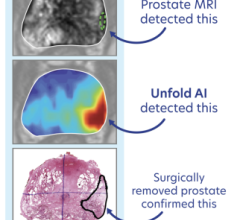
September 29, 2016 — The American Society for Radiation Oncology (ASTRO) extended its congratulations to the authors and investigators in the Prostate Testing for Cancer and Treatment (ProtecT) trial, which randomized care for 2,664 men. Findings from the trial were published in the New England Journal of Medicine.
The paper emphasizes the importance of joint decision making between prostate cancer patients and their physicians when weighing treatment options for early stage disease. Findings from the ProtecT trial can help patients understand the full range of approaches to manage their disease, including the risks and benefits of active monitoring versus early treatment with radiation therapy (RT) or surgery.
Ten-year findings from the trial indicate that for men with early-stage prostate cancer, there is no difference in mortality rates following active monitoring, surgery or RT. Moreover, cancer-specific deaths at ten years following diagnosis averaged only 1 percent for all men enrolled in the trial.
Growth of the cancer outside of the prostate did vary between monitoring and treatment groups. Rates of both regional spread and distant metastases were significantly higher for men who were monitored rather than treated for their early-stage disease. Progression did not vary, however, between the surgery and RT groups, although patients in the trial reported different side effects with each modality.
“These findings underscore the essential role of dialogue in treatment selection,” said ASTRO President David C. Beyer, M.D., FASTRO. “Men with prostate cancer are all different, and the relative costs and benefits associated with the multiple options to treat it can vary substantially between individuals. The best treatment decisions for prostate cancer, or any cancer, take into consideration the specifics of each individual patient’s disease, expectations and preferences. These options can be confusing, and patients should always make these decisions after consultation with a radiation oncologist and urologist”
ASTRO, the American Urological Association (AUA) and the American Society for Clinical Oncology (ASCO) are currently developing updated guidelines for the management of clinically localized prostate cancer. The recommendations, which update a 2007 collaborative guideline issued by the societies, are scheduled for publication in mid-2017.
For more information: www.astro.org


 August 09, 2024
August 09, 2024 








